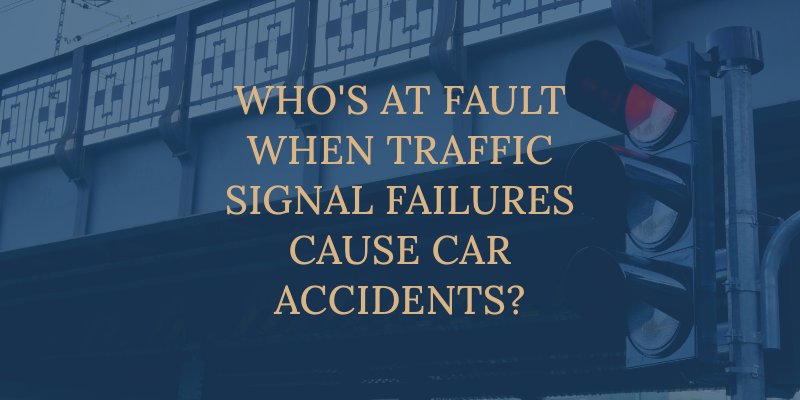Who’s At Fault When Traffic Signal Failures Cause Car Accidents?

New Jersey drivers rely on traffic signals to safely and accurately direct the flow of traffic. When a stoplight fails or shows the wrong signal, the outcome can be disastrous for drivers, cyclists and pedestrians in the intersection. Determining fault and knowing where to turn for financial compensation after these accidents can be difficult without help from a New Jersey accident attorney.
What Causes New Jersey Traffic Signals to Fail?
Traffic lights and other electronic signaling devices rely on machinery and electricity to function correctly. If something goes wrong mechanically, the traffic light can malfunction. Examples include:
- Electrical problems
- Power outages or surges
- Faulty wiring
- Poor maintenance
- Delayed repairs
- Design or manufacturing defect
- Faulty installation
- Vandalism
- Damage from an accident
Fault for a related car accident will depend on why the traffic signal failed or malfunctioned. An investigation may be necessary to identify what went wrong with the traffic light and who played a role.
How to Bring a Claim Against the New Jersey Government
Traffic signals located on public roads fall under the jurisdiction of the government. On a city road, the municipal government is generally responsible for ensuring the proper function of its traffic lights. On a state road or highway, the State of New Jersey is responsible for maintaining working traffic signals.
If you wish to bring a car accident claim against a government agency, you must abide by the specific rules listed in the New Jersey Tort Claims Act. These cases have much shorter filing deadlines or statutes of limitations than typical cases. You must file notice of a claim with the correct government agency within just 90 days of your accident.
What Are a Driver’s Responsibilities When Approaching a Broken Light?
If a traffic signal fails at a critical moment, the drivers approaching the intersection may not have time to react to avoid a collision. If a driver approaches an intersection and sees the traffic light out of service, however, he or she has a responsibility to proceed with caution and in accordance with New Jersey’s right-of-way laws.
When a traffic light is not operating properly, all drivers approaching the intersection must come to a complete stop. The intersection should be treated as an all-way stop, with the driver who approached the intersection first having the right-of-way. If a driver negligently does not adapt to the situation and causes an accident, he or she can face liability.
Third-Party Liability
Car accident cases involving traffic signal failures in New Jersey can be complicated. The government could be held responsible for the signal malfunctioning, or a part manufacturer could be held liable for a defect through a product liability claim. A driver may also share fault for failing to react appropriately to the signal failure.
There is also the possibility of third-party liability. A third party is someone not immediately at the scene of the accident who contributed to the crash through an act of negligence. In a traffic signal failure situation, a contractor or maintenance crew could be held accountable if faulty installation is to blame.
How a Car Accident Lawyer Can Help
As an injured crash victim, you may be able to hold multiple parties responsible for your traffic signal failure accident in New Jersey. You may be entitled to payment for your medical bills, vehicle repairs, pain and suffering, lost wages, and more from one or more insurance providers.
Protect your rights and explore your legal options by contacting a personal injury attorney in New Jersey. A lawyer can determine liability and gather the right evidence to support your claim.
